John Bellingham - for the assassination of Sir Spencer Perceval.
John Bellingham - for the assassination of Sir Spencer Perceval.
Britain does not have a history of assassination of its political leaders but around 5.15 p.m. on the afternoon of Monday the 11th of May 1812, just such an event occurred when John Bellingham shot and killed the Prime Minister, Sir Spencer Perceval.
On the fateful Monday, Bellingham had entered the House of Commons in search of his intended victim, Lord Leveson Gower, Britain’s former ambassador to Russia. Bellingham had been imprisoned in Russia for debt when a business venture had failed and he blamed the British government and Gower, especially, for not doing anything to assist him.
After his release Bellingham returned to Britain and lobbied the Foreign Office for compensation, which was not forthcoming. He visited it on the 18th of April 1812 and was told that he was at liberty to try and pursue his claim, but not to expect success. Two days later, on the 20th of April, Bellingham purchased a pair of half inch calibre pistols, together with balls and ammunition.
Once at the House of Commons, he waited in the lobby for Gower to arrive and mistakenly thought that Sir Spencer Perceval was he. He fired a shot at this man, hitting him above the left nipple. At close range flintlock pistols can be fatal, and Percival died within a few moments. Bellingham sat calmly on a bench waiting to be arrested.
He was tried at the May Sessions of the Old Bailey, just four days later, on the 15th of May 1812, before the Lord Chief Justice, Sir James Mansfield. His defence lawyer applied to have the trial postponed so that he could collect sufficient evidence of insanity but this was rejected by the Lord Chief Justice.
In his summing up Lord Mansfield told the jury that “there is a species of insanity where people take particular fancies into their heads, who are perfectly sane and sound of mind on all other subjects, but this is not a species of insanity which can excuse any person who has committed a crime, unless it so affects his mind at the particular period when he commits the crime as to disable him from distinguishing between good and evil or to judge the consequences of his actions.”
Bellingham made the following statement to the jury : "Recollect, Gentlemen, what was my situation. Recollect that my family was ruined and myself destroyed, merely because it was Mr Perceval's pleasure that justice should not be granted; sheltering himself behind the imagined security of his station, and trampling upon law and right in the belief that no retribution could reach him.
I demand only my right, and not a favour; I demand what is the birthright and privilege of every Englishman. Gentlemen, when a minister sets himself above the laws, as Mr Perceval did, he does it as his own personal risk. If this were not so, the mere will of the minister would become the law, and what would then become of your liberties?
I trust that this serious lesson will operate as a warning to all future ministers, and that they will henceforth do the thing that is right, for if the upper ranks of society are permitted to act wrong with impunity, the inferior ramifications will soon become wholly corrupted. Gentlemen, my life is in your hands, I rely confidently in your justice."
The jury convicted him after a short deliberation and Sir James Mansfield passed sentence as follows: "That you be taken from hence to the place from whence you came, and from thence to a place of execution, where you shall be hanged by the neck until you be dead; your body to be dissected and anatomized."
Bellingham was hanged outside the Debtor’s Door of Newgate prison at 8.00 a.m. on Monday the 18th of May 1812, by William Brunskill.
When Brunskill went to pinion him, Bellingham expressed concern that his arms were not tied tightly enough and that if he struggled, he might get them free. Brunskill obliged by tightening the cord. Bellingham walked unaided to the gallows, accompanied by the Ordinary of Newgate, the Rev. Dr. Ford.
The usual preparations were made, with Bellingham objecting to the hood, but Dr. Ford insisting that it was necessary. As the clock of St. Sepulchre’s struck for the seventh time, Brunskill released the trapdoor from below causing Bellingham to drop through to knee level.
After hanging for one hour the body was taken down and conveyed on a cart to St. Bartholomew’s Hospital for dissection.
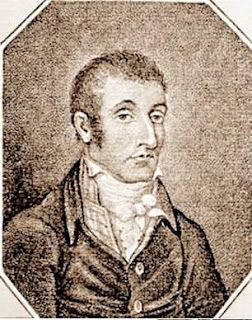



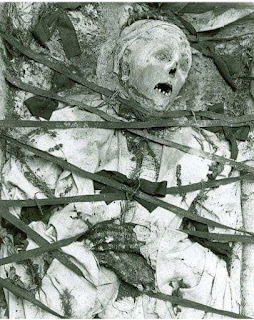
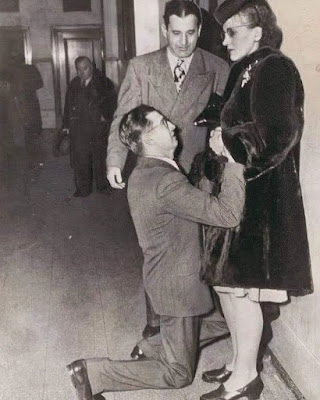
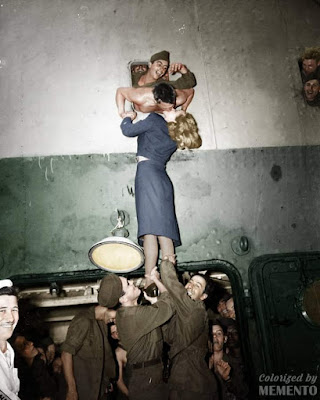


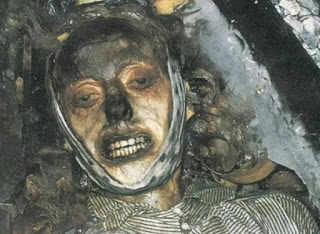
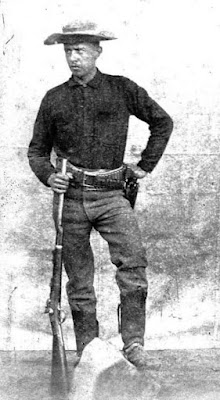
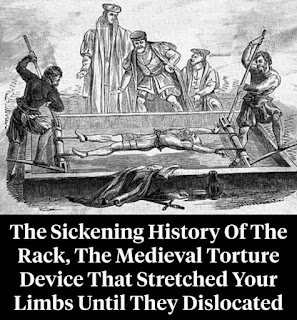
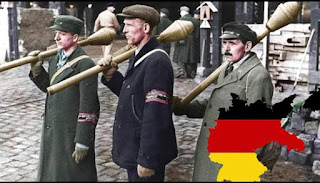
Comments
Post a Comment